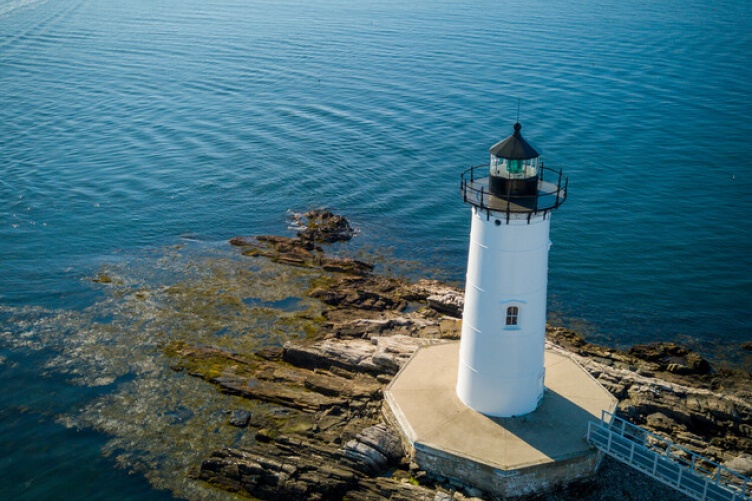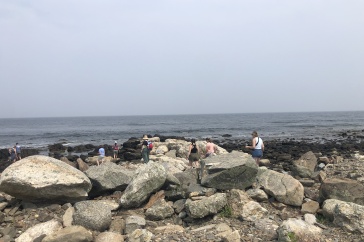
As the Biden administration announces a plan to expand the development of offshore wind energy development (OWD) along the East Coast, research from UNH shows significant support from an unlikely group, coastal recreation visitors. From boat enthusiasts to anglers, researchers found surprisingly widespread support with close to 77% of coastal recreation visitors supporting potential OWD along the New Hampshire Seacoast.
“This study takes a closer look at the lingering assumption that offshore wind in the United States might hurt coastal recreation and tourism when in fact, we found the opposite,” said Michael Ferguson, assistant professor of recreation management and policy. “Our findings suggest that offshore wind energy development will likely have little impact on coastal recreation and tourism, and in some instances, may even help amplify visitation.”
“Our findings suggest that offshore wind energy development will likely have little impact on coastal recreation and tourism, and in some instances, may even help amplify visitation.”
In the study, recently published in the journal Energy Research & Social Science, researchers collected data from N.H. coastal recreation visitors using on-site surveys at 18 different locations along the Seacoast, including beaches, marinas, boat launches, angling locations and yacht clubs. They surveyed a variety of visitors from sightseeing and charter operators to beach goers, surfers and anglers assessing overall perceptions toward acceptance, support, fit and recreation impact of OWD. The researchers found that when asked about OWD, 77% of coastal visitors were supportive, 73% were accepting and 58% agreed that OWD would fit the N.H. seascape.
To help coastal recreation visitors visualize what a commercial scale offshore wind farm would look like on the N.H. Seacoast, the researchers showed 50% of respondents a photo simulation of an OWD project while the other 50% of respondents did not view it. Findings indicated that it did not matter if respondents saw the photo simulation of not, their attitudes remained the same; largely positive and supportive. Additionally, most respondents agreed that OWD would not cause them to alter or substitute their recreation activities, behaviors or experiences.
“Most of these coastal recreation visitors frequented the area, so these are people with strong ties to the N.H. Seacoast,” said Ferguson. “And, since offshore wind energy development has had its hurdles gaining traction and acceptance in the United States, our findings suggest that coastal recreation visitors are open and supportive of it and policymakers, natural resource managers, and the OWD industry should recognize coastal recreation and tourism as critical stakeholder sectors.”
The researchers cite in their paper that along the N.H. Seacoast, coastal recreation is an essential sector of the state economy, accounting for more than $1.5 billion in annual economic impact. Across the nation, beaches and their associated coastal recreation activities serve as a leading source of tourism revenue in states with coastlines.
This work was supported by New Hampshire Sea Grant.
-
Written By:
Robbin Ray ’82 | UNH Marketing | robbin.ray@unh.edu | 603-862-4864
-
Compiled By:
Jeremy Gasowski | UNH Marketing | jeremy.gasowski@unh.edu | 603-862-4465
















































